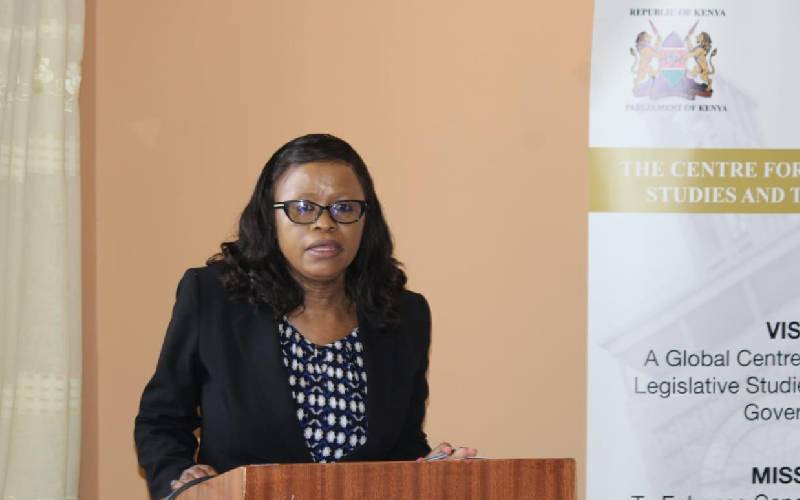Today marks the fifth anniversary of the Kenya Constitution 2010. We celebrate it considering that it took years of struggle (at times violent) to get the current Constitution. Even though it was considered a compromise document given the number of competing interests that all demanded to have their views accommodated, it has been hailed as the most progressive in Africa. Kenyans today enjoy freedoms and rights they could only dream of a few years back.
The Bill of Rights, the freedoms of expression, choice, assembly and movement have not only helped in advancing democracy and development, they have helped in shrinking distance and space between the people. Devolution of authority and services has been the single most notable achievement of the 2010 Constitution. It has aided in spurring rapid development in the regions that would probably have taken longer, perhaps decades, were it left to the centralised system of government.
In many ways, the 2010 Constitution has changed the way we do things; there is relatively more accountability, competency, responsiveness and transparency in the public service; reforms in the Judiciary though sputtering, have covered good ground. The judicial independence from the Executive especially, is taking root; the people "feel government", they feel included; MPs know that there are consequences for non-delivery. Yet Parliament and the Executive and not the People, present the greatest danger to this new way of doing things.
Parliament, the custodian of our laws, has failed the test of fidelity to the Constitution. It has initiated amendments that run counter to the spirit of the new law. They watered down the provisions that raised the integrity bar in Chaper Six; to ensure that they remain the only public employees free to determine their pay, they took on the Salaries and Remuneration Commission. They coerced and cajoled it because it stood in the way of their unbridled desire to feather their own nests at the expense of ordinary taxpayers.
They didn't stop there. They went for the Ethics and Anti-Corruption Commission. MPs conspired to send all the commissioners and the secretariat home at a time when the war on corruption had taken off in earnest. One wonders, in whose interest? Their desire to operate outside the established laws led to attempts to create new rules that give them immunity from prosecution in and out of office.
The Executive introduced oppressive media laws and the Security (Amendment) Bill 2014 that sought to clamp down on a free, vibrant media. The withdrawal of Government advertising has adversely affected an industry that contributes close to Sh2.3 billion to the taxman.
Further, the funding of Non-Governmental Organisations (NGOs) that offer economic and humanitarian assistance to marginalised groups in the country, under the guise of fighting security, was slashed. The impact of that on the economy can be felt already. The precipitous drop of the shilling's value can, in many ways, be attributed to the lack of sufficient foreign exchange after inflows were cut off together with a slackened security situation. The security of tenure for the Inspector General of Police was introduced by the framers of the Constitution to, above all, cushion the holder from undue influence and thereby enhance his authority and that of the Police Service in security matters. Yet Parliament, in connivance with the Executive, voted to amend the law handing the President the authority to appoint and fire the holder at will. These are just but a few examples.
What we have seen in the last five years is leaders trying, often successfully, to guide the Constitution rather than be guided by it. That ought to stop and Kenya will be the poorer if it does not.
 The Standard Group Plc is a
multi-media organization with investments in media platforms spanning newspaper
print operations, television, radio broadcasting, digital and online services. The
Standard Group is recognized as a leading multi-media house in Kenya with a key
influence in matters of national and international interest.
The Standard Group Plc is a
multi-media organization with investments in media platforms spanning newspaper
print operations, television, radio broadcasting, digital and online services. The
Standard Group is recognized as a leading multi-media house in Kenya with a key
influence in matters of national and international interest.
 The Standard Group Plc is a
multi-media organization with investments in media platforms spanning newspaper
print operations, television, radio broadcasting, digital and online services. The
Standard Group is recognized as a leading multi-media house in Kenya with a key
influence in matters of national and international interest.
The Standard Group Plc is a
multi-media organization with investments in media platforms spanning newspaper
print operations, television, radio broadcasting, digital and online services. The
Standard Group is recognized as a leading multi-media house in Kenya with a key
influence in matters of national and international interest.






